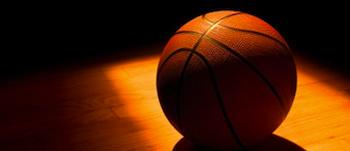- MENU
- HOME
- SEARCH
- WORLD
- MAIN
- AFRICA
- ASIA
- BALKANS
- EUROPE
- LATIN AMERICA
- MIDDLE EAST
- United Kingdom
- United States
- Argentina
- Australia
- Austria
- Benelux
- Brazil
- Canada
- China
- France
- Germany
- Greece
- Hungary
- India
- Indonesia
- Ireland
- Israel
- Italy
- Japan
- Korea
- Mexico
- New Zealand
- Pakistan
- Philippines
- Poland
- Russia
- South Africa
- Spain
- Taiwan
- Turkey
- USA
- BUSINESS
- WEALTH
- STOCKS
- TECH
- HEALTH
- LIFESTYLE
- ENTERTAINMENT
- SPORTS
- RSS
- iHaveNet.com
By Ben Miller

Arne Duncan is right on the money on student athletes' lousy classroom performance
Ben Miller is a policy analyst at Education Sector, an independent think tank in Washington.
A billion-dollar, monthlong extravaganza, the NCAA Division I men's basketball tournament showcases the best of college sports--rabid fan bases, historic rivalries, and a format that puts small rural colleges on par with big state powerhouses. But beneath the glam and glitz lies a problem the NCAA would rather leave unnoticed: the dismal classroom performance of its student athletes. It's time the NCAA acknowledged that problem by including academic concerns in determining who makes the tournament.
Data demonstrate the lousy academic performance of most recent tournament participants. Federal data calculating the rate of graduation within six years for the four classes that enrolled from 1999 through 2002 show that on average, teams from last year's tournament graduated just 43 percent of their players. That includes six teams with graduation rates under 20 percent and two others in single digits. Then there's
An NCAA-created graduation rate formula that excludes students who turn professional, transfer, or drop out, as long as they leave in good standing, produces only slightly better results. Under this calculation, last year's teams had an average graduation rate of 59 percent, meaning that 2 out of every 5 players on the floor were still falling short academically.
Poor results notwithstanding, it's easy to dismiss academics as an ancillary issue. College basketball players are given a free college education, so who cares if they fail to take advantage of it?
While the student part of student athlete may not mean anything for the handful who go to the
For years, the NCAA has played up its academic component when convenient, touting the classroom-competition balancing act in TV ads and showing students' majors alongside season statistics during games. Now, it's time for the organization to back up its talk with tougher academic action. A good place to start is to follow the advice of Education Secretary Arne Duncan and penalize schools that do not value academics. Teams and coaches that graduate players at a lower rate than their institution's other student athletes should be at risk of losing scholarships. Teams with an NCAA-calculated graduation rate below 33 percent should not play in the postseason. These squads do not deserve to be rewarded with a spot on the
If enforced last year, this proposal would have kept 10 teams out of the tournament--a noteworthy number but hardly a mass expulsion. But last year's teams also show that academic success need not preclude on-court achievement.
Instead, new academic eligibility requirements would catch the bad apples, those like the
A greater emphasis on academics provides other benefits. The current importance placed on winning now regardless of long-term costs rewards teams that lower academic standards. The results are not pretty.
Increased academic importance alters this win-at-all-costs mind-set. One quick trip to the tournament would be outweighed by the prospect of a multiyear postseason ban. Coaches, too, would not outrun their record of past academic failings. No longer would John Calipari flee from academic problems at one school in time to head a likely national championship contender the following spring. Recruiting violations follow coaches from job to job. Why shouldn't academic infractions?
The NCAA is at a critical juncture. It can opt out of the final portion of its contract with
Read why the NCAA should be honest about the student athlete set-up, by Marc Isenberg, author of Money Players.
Copyright © U.S. News & World Report
NCAA Should Bar Low Graduation Rate Schools From March Madness